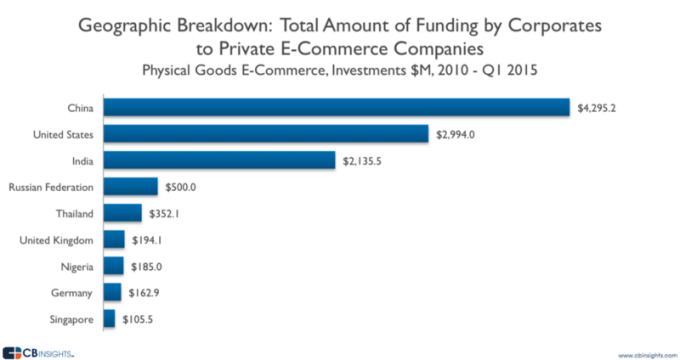Copia Global Secures $20 Million for African E-commerce Dominance
Copia Global recently secured $20 million in a Series C extension round, with significant contributions from Enza Capital, co-founded by John Lazar, the former CEO of Metaswitch. Other major participants include LGT, Goodwell Investments, DFC, DEG, Elea, Perivoli Foundation, and Sorenson Foundation. The investment aims to support Copia Global, a Kenyan e-commerce and fintech platform targeting mid- and low-income African consumers in rural areas. The platform employs a network of over 50,000 local agents, facilitating access to goods and services. Copia has experienced annual growth of 100%, emphasizing scale and swift expansion.
Reasons for Investment
The investors, including Enza Capital, have strategically positioned their capital for several compelling reasons.
Tapping into Expanding Consumer Spending
The investment hinges on a keen anticipation of the forthcoming surge in African consumer spending, poised to exceed $2 trillion. Copia’s target demographic — the mid- and low-income consumers in rural areas — aligns seamlessly with this anticipated growth. The sheer scale of approximately 750 million potential consumers in Copia’s crosshairs provides investors with a compelling prospect to tap into a burgeoning market.
Operational Resilience and Fulfillment Network
Beyond financial figures, investors are attracted to Copia’s operational resilience, exemplified by its robust fulfillment network comprising over 50,000 local agents. This on-the-ground presence positions Copia uniquely to address the nuanced challenges faced by consumers in rural areas, from choice limitations to issues of price and reliability. The strategic emphasis on hyperlocal strategies resonates with investors seeking ventures with a granular understanding of diverse markets.
Strategic Alignment and Professional Relationships
Investors, particularly Enza Capital and John Lazar, are not just putting their money into a venture; they are leveraging strategic alignments and established professional relationships. Lazar’s long-standing rapport with the Copia team adds an additional layer of confidence, affirming the strategic vision and execution capabilities of the platform.
Profitability Focus
The recent shift in Copia’s focus, from expansive growth to a targeted pursuit of profitability in Kenya, reflects a nuanced understanding of market challenges. Investors appreciate Copia’s adaptive approach, acknowledging the global capital market’s shifts and its impact on business models. The commitment to achieving profitability in Kenya before scaling up internationally aligns with investors’ expectations for a sustainable and measured growth trajectory.
A Look at Copia
Founded a decade ago, Copia is a Kenyan e-commerce and fintech platform targeting mid- and low-income consumers in rural areas. The platform was established by founders with a vision to address challenges in accessing goods and services faced by consumers in these regions. Copia’s primary markets are in Kenya, where it operates through a network of local agents.
The startup, despite recent changes in expansion plans, maintains a focus on achieving profitability in Kenya. Copia’s approach involves leveraging local agents and logistics, providing a variety of goods to consumers who face challenges in traditional access methods.
The platform’s shift towards digitization reflects a response to increased smartphone penetration, aiming to tap into a market with significant potential. Once achieving profitability in Kenya, Copia plans to extend its operations to 14 other strategically identified countries.
John Lazar, now on Copia’s board, intends to contribute his tech operator experience and investor network to support talent acquisition, sales strategies, and provide insights to the executive team.
Copia Global Copia Global

Charles Rapulu Udoh is a Lagos-based lawyer, who has several years of experience working in Africa’s burgeoning tech startup industry. He has closed multi-million dollar deals bordering on venture capital, private equity, intellectual property (trademark, patent or design, etc.), mergers and acquisitions, in countries such as in the Delaware, New York, UK, Singapore, British Virgin Islands, South Africa, Nigeria etc. He’s also a corporate governance and cross-border data privacy and tax expert. As an award-winning writer and researcher, he is passionate about telling the African startup story, and is one of the continent’s pioneers in this regard.














